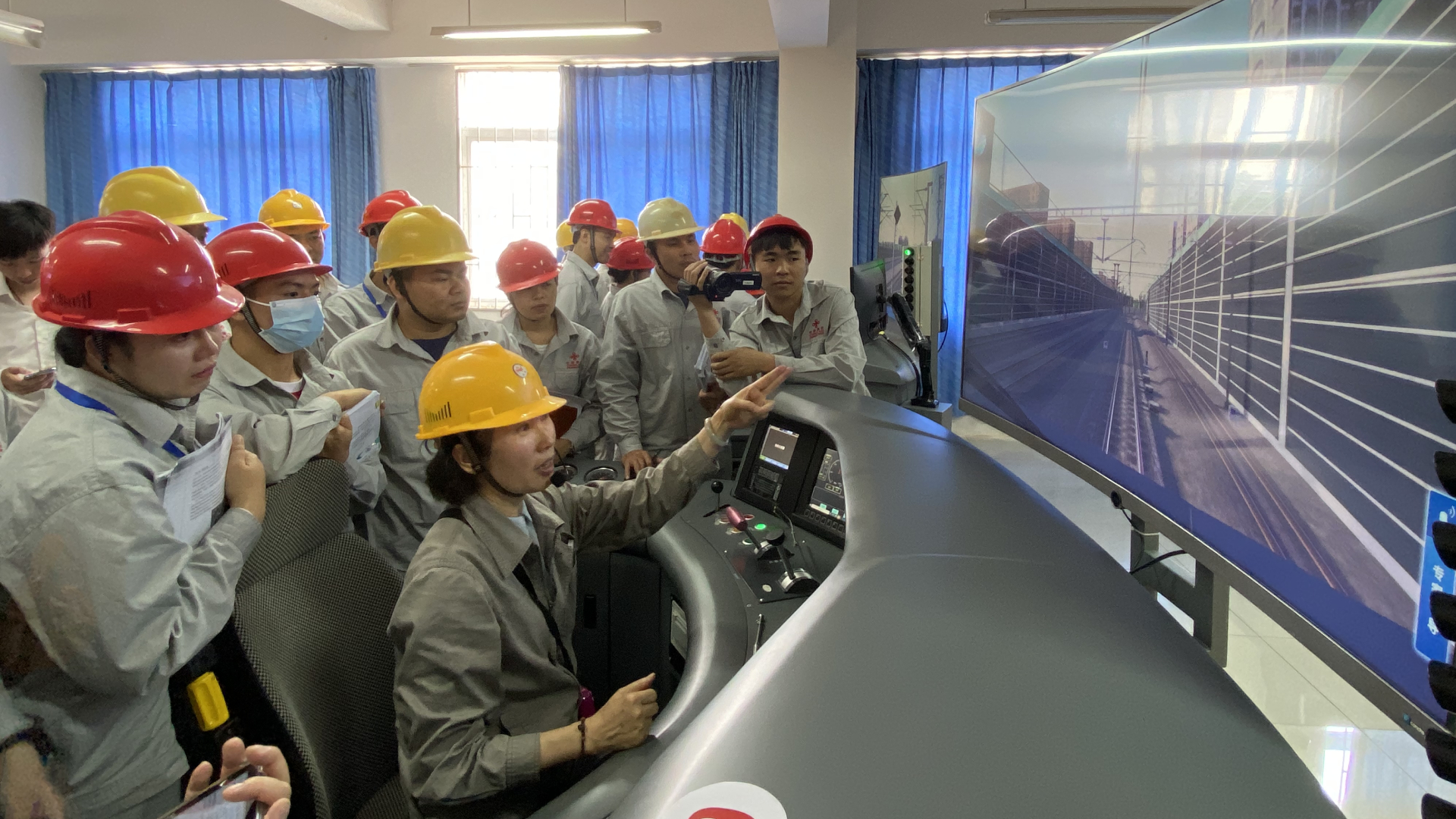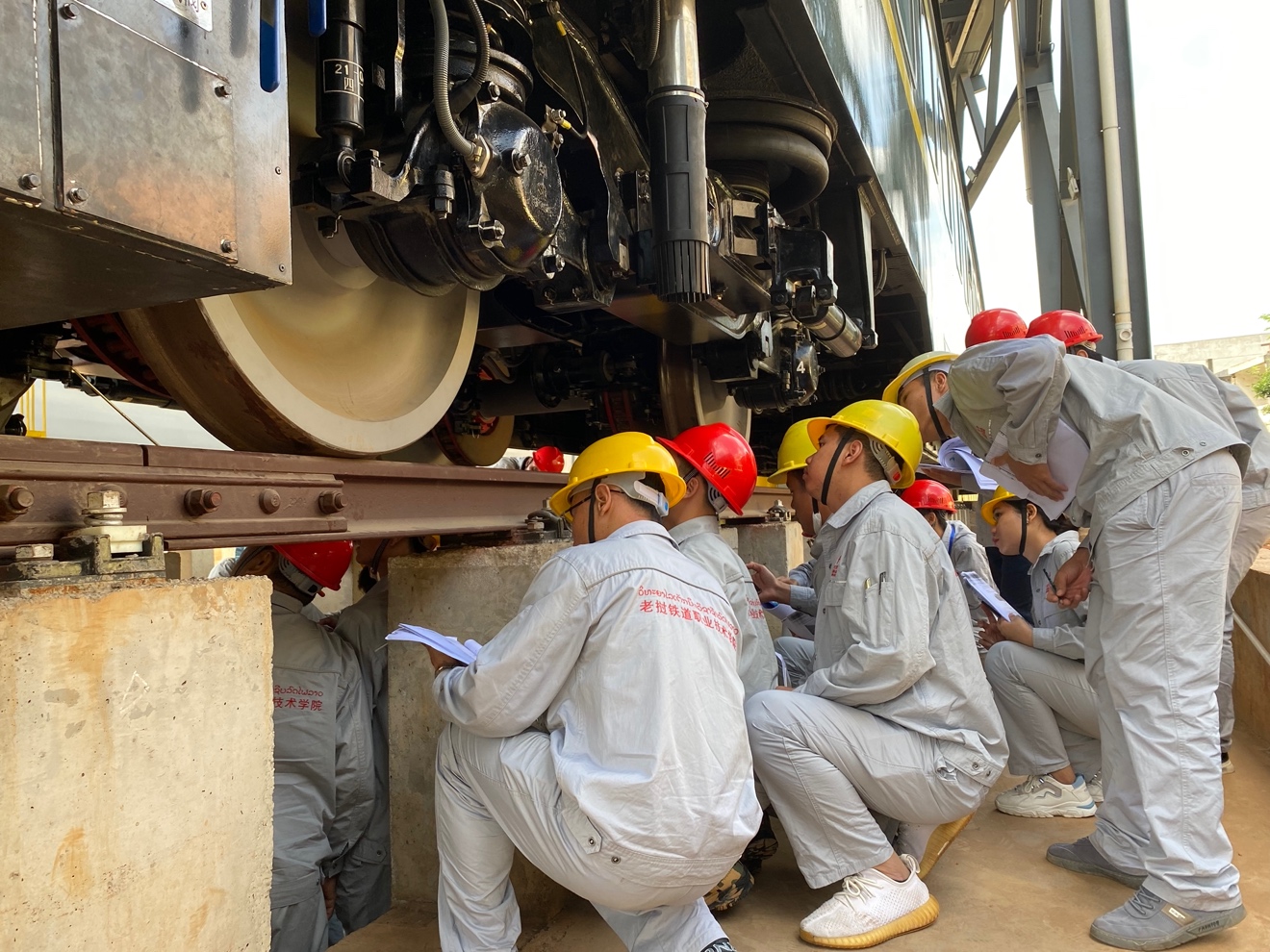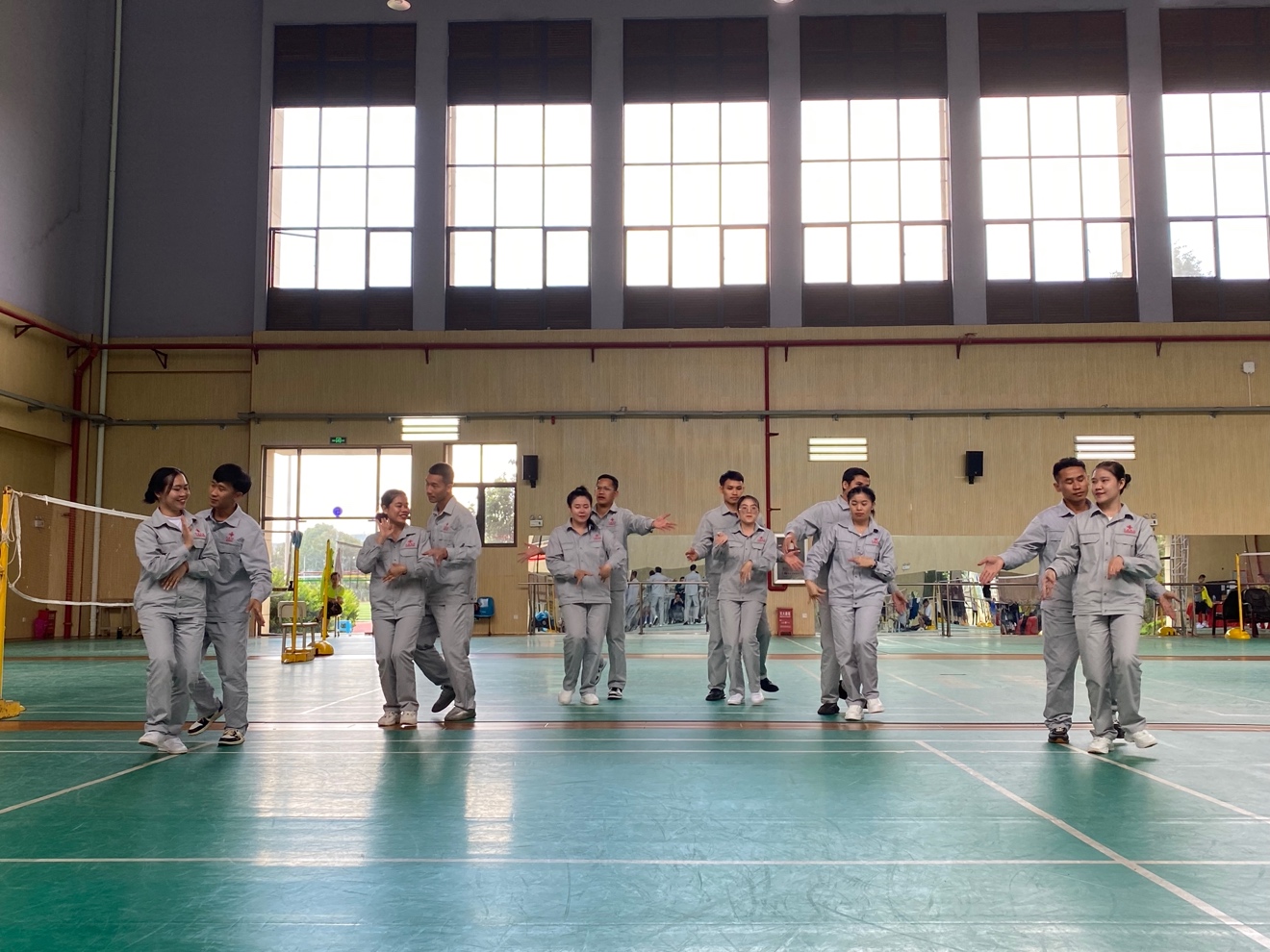02:30

A group of young people from Laos are learning railway technology in southwest China's Kunming City as an exchange program under the China-Laos Railway project.
The 40 trainees started their training at the Kunming Railway Vocational Technical College in late March. This came after the cross-border rail opened in December last year, linking Kunming with the Lao capital Vientiane.
Upon the completion of the two-year program, the trainees will work as teachers at a similar school in their own country.

Trainees from Laos attend a lecture on railway engineering. Yang Jinghao/CGTN
Trainees from Laos attend a lecture on railway engineering. Yang Jinghao/CGTN
Language is the first barrier they need to overcome. There's a Chinese language course and the school has matched each student with a Chinese peer to help.
"I couldn't speak any Chinese in the beginning, but now I can communicate with my Chinese friends, and also understand most of the lectures," Khamphout Xayyakhouthong, one of the students, told CGTN. "I've learnt a lot during the past seven months."
Teachers here also try to innovate in their methods and the curriculum.
"There was no railway in Laos before, so there were no related terms in their language. This is a big problem," said Li Xiuling, a teacher at the school. "So I try to use as many pictures, videos and animations as I could to help them understand what I'm teaching."
Apart from theoretical studies, there are also simulated training courses for students to effectively build up essential skills.
"The construction of the railway vocational technical college of Laos will be completed soon, I hope I can take the knowledge and other advanced things I acquire here back, and do my best to train more specialists for my country," said Xayyakhouthong.

The Laos trainees perform ethnic dance after class. Yang Jinghao/CGTN
The Laos trainees perform ethnic dance after class. Yang Jinghao/CGTN
It's almost a year since the China-Laos Railway opened. The students said the cross-border link has not just improved the transportation system of Laos, it's also created many economic opportunities.
"This would guarantee the railway operates in a sustainable way and benefits more people," said Vilaivone, another trainee. "I hope the two countries will hold more educational exchanges like this."
The college will send teachers to Laos for five years to help the trainees when they start to teach back home.
"This program is like a seed. With it, the friendship between the two sides will also bloom," said Li Ruilin, president of the college.